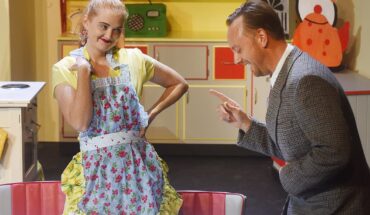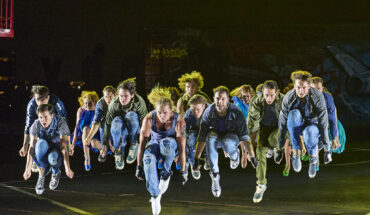This Won’t End Well: Secrets of Great Short Storytelling featured three, quite different authors, offering insights into their writing processes, and what makes a good short story. The session began with each author reading the opening to a story of theirs, sampling the variety of ways to grab an audience. Tara June Winch (Sydney Morning Herald Best Young Novelist) began, reading in a girlish, melancholy voice, before explaining the real-life events that had prompted (and succeeded) the story. The paragraphs she read featured a series of vivid childhood images. These, she confided, were snapshots from her own childhood, and it was these images that often prompted her stories.
Joy Williams (Pulitzer Prize finalist) read from a story set in the days leading up to a school mass shooting, narrated by the shooter’s father (no, it’s not We Need to Talk About Kevin). The gem I extracted from what she said afterwards, was that the power and impact of short stories do not stem from the narrative. A particular pleasure of Joy’s, in writing, is the delight of writing dialogue — and being able to make characters say anything, speak ‘above their station’. This musing allowed for a beautiful segue to George Saunders (finalist for National Book Award, winner Folio and Story Prizes). George’s writing — as well as his mind, he told us, features a remarkably strong internal dialogue. The characters will narrate what they’re doing, rebuke and laugh at themselves. Rather than pinning his writing to memories a la Tara, he instead waited for a voice to come. He described his writing method as letting the characters talk and tell him what has to happen, then editing. The art of fiction is paying attention to whoever shows up, even if you don’t like them. George spoke a little of the skill of crafting the right amount of empathy for unsavoury characters, before hostess Tegan Bennett Daylight steered the panel onto the next topic.
The authors spoke about their stories and what makes a good one (see Joy’s 8 Essential Attributes of a Short Story for a poignantly written summary), and how often a short story is having striking start and finish sentences, and praying there’s some plot in between. The panel was humorous at times, touching on creativity, inspiration, and flirting with the darkness and violence present in the works of the authors. The font of fiction, according to Saunders, is that there’s always a problem. Empty optimism might make bad prose but there’s no point being habitually negative either.
The final statements in the session were appropriately impactful. Saunders closed with the conclusion that avery dark truth that is very true is beautiful. In response to a question regarding the place of fiction writing in today’s society: ‘a thing of beauty can remind us we’re not as stupid as culture makes us feel. We’re capable of creating complex systems of beauty’.
– Liv
Liv S. is a creature of new notebooks and negronis. Her interests include alliteration, apples, and utterances in triplicate. Follow her frolics on @callmememphisjones.
The Sydney Writers’ Festival runs 22-28 May 2017. Read our guide for the top picks.





